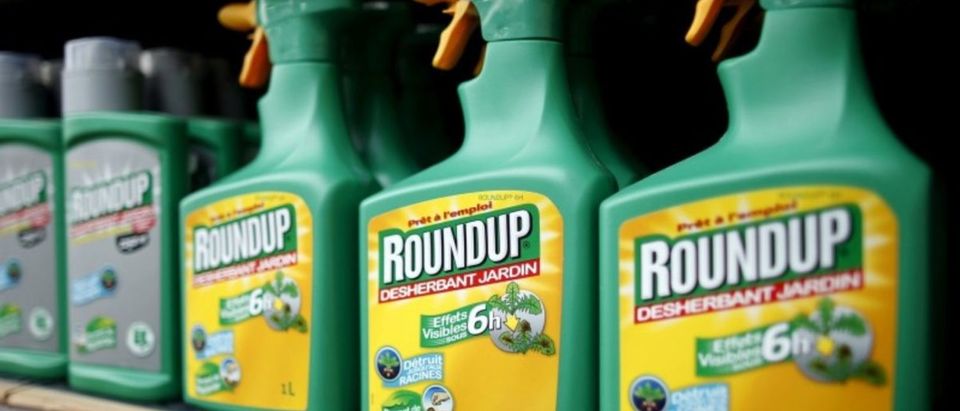A political storm brewing in Europe over glyphosate, a common weed-killer, may soon spell the end of the product, with no viable replacements—all stemming from involvement by American liberal activists.
On October 5th, 2017, Reuters reported that the European Commission was considering a 10-year extension on the license for glyphosate, but the licensing vote ultimately didn’t take place. American anti-pesticide activists and European policymakers had previously debated heavily over the continued use of the herbicide.
Later, on October 11th, the European Parliament held a hearing on the “Monsanto Papers,” documents released by US plaintiffs that allege exposure to glyphosate causes cancer. However, some of the first to speak at the hearing weren’t Europeans.
American liberal activists Chris Portier, the former advisor to the Environmental Defense Fund, and Carey Gilliam, the research director of US Right to Know, were the first to speak at the hearing. Kate Guyton, an International Agency for Research on Cancer (IARC) scientist who oversaw a study alleging glyphosate is unsafe, was also present.
Moreover, only two out of seven speakers represented EU regulatory agencies, begging the question as to why European lawmakers are relying on American activists for information, rather than their own agencies. Ultimately, the hearing amounted to a condemnation of glyphosate with limited evidence.
Furthermore, Dr. Jose Tarazona, a scientist with the European Food Safety Authority, noted that agencies in Canada, Japan, and New Zealand had declared glyphosate safe.
Despite all the evidence, the EU is dragging its feet over extending glyphosate’s license although major European regulators have already declared the herbicide non-carcinogenic, considering IARC’s pronouncement of glyphosate as “probably carcinogenic.”
This political involvement is unfortunate, as glyphosate was developed over many years and has been in use for over four decades. Farmers have used the herbicide since the 1970s, and it has no serious alternatives.
A huge hole in IARC’s pronouncement is that it failed to account relevant studies in its evaluation, refusing to utilize the yet unpublished Agricultural Health Study, funded by the United States, which has evaluated pesticides over 30 years. IARC did not review this data due to a rule preventing it from considering unpublished research.
Clearly, glyphosate can be declared safe until relevant data declares otherwise. Vinegar, an alternative to glyphosate, has demonstrated toxicity in soil, while industrial herbicides are even more toxic, such as paraquat which has been linked with Parkinson’s disease in studies by the National Institutes of Health.
France, which wants to ban glyphosate, has infuriated its farmers, as 85% of them utilize the herbicide. Farmers have dubbed the ban “unacceptable,” and an Ipsos study has expressed that a glyphosate ban would cost the agricultural sector approximately $1.3 billion.
The political spat over glyphosate mirrors efforts by environmental activists in the U.S., and shows the danger of allowing activists like Portier to affect policy based on sound logic and reason.
Thankfully, for farmers in the United States, the Environmental Protection Agency (EPA) has given glyphosate its approval, but American companies operating in European markets should exercise an element of caution, as some are calling the debate, “the tip of the regulatory iceberg.”
Views expressed in op-eds are not the views of The Daily Caller.


